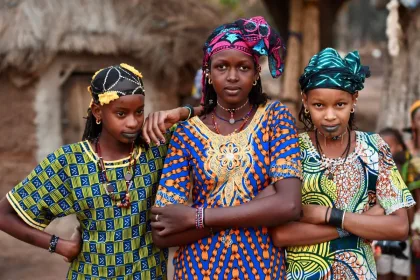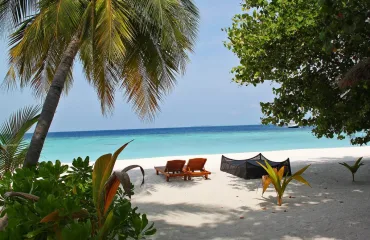
Exploring the Rich Tapestry of Côte d’Ivoire
Nestled on the shores of the Gulf of Guinea, the Côte d’Ivoire is a country where history, culture, and tribal traditions weave together into a mesmerizing tapestry. As a land that has witnessed the footsteps of empires, the rhythms of ancestral ceremonies, and the vibrant expressions of diverse tribes, Côte d’Ivoire offers intrepid travellers a unique opportunity to immerse themselves in a world unlike any other.
For many in English speaking countries, Côte d’Ivoire is better known as Ivory Coast. Côte d’Ivoire is the French name for the country and this which directly translates to “Ivory Coast” in English. The French name derives from the early colonial history of the region when European powers established a presence in Africa. This historical association is deeply embedded in the country’s identity and cultural heritage.
The name Côte d’Ivoire specifically refers to the stretch of coastline along the Gulf of Guinea, which was historically a significant trading region for ivory and other commodities. The name reflects the nation’s rich history of trade, as well as the interconnectedness of the region with the global economy during colonial times.
While “Ivory Coast” is widely recognized and used in English-speaking countries, there has been a growing effort to promote the use of the country’s official French name, Côte d’Ivoire, in international contexts. Many international organizations and media outlets have gradually adopted the official name to reflect the country’s self-designation and at Our Local Tour, we have chosen to use the official name.
Tracing the Footsteps of Empires
Stepping onto the sun-kissed soil of Côte d’Ivoire can feel like stepping back in time, with glimpses of the empires that once held sway over this land to be found all over. In Grand-Bassam, a UNESCO World Heritage site that was once the colonial capital of the country, you can stroll through its narrow streets, lined with colonial-era buildings that exude an air of faded grandeur, and you’ll find yourself transported back to an era when European powers vied for control over African territories.
Beyond Grand-Bassam lies the vibrant city of Abidjan, where modernity harmoniously now coexists with these echoes of the past. The Plateau district boasts a skyline that tells a story of economic growth and urban development. Yet, even in the heart of this bustling city, the towering St. Paul’s Cathedral stands as a poignant reminder of the enduring influence of Christianity on the nation’s history.
Dance, Music, and Festivals
Delve into the heart of Côte d’Ivoire culture, and you’ll be captivated by the rhythm of life that courses through its veins. Dance and music serve as integral parts of their identity, with each tribe contributing its unique style to the country’s variety of traditions. The vibrant colours, hypnotic beats, and graceful movements of traditional dances like the Zaouli, a mask dance of the Guro people, tell stories that have been passed down through many generations. Côte d’Ivoire is a mixing pot of cultures from all over West Africa and with so many different tribes, there is almost always a festival to visit.
The Yam Festival, celebrated by the Bete people, pays homage to the staple crop that sustains many communities. The Goli Festival of the Wan people brings together generations in a vibrant celebration of identity, unity, and heritage. Who knows what will be celebrated when you visit?
Tribal Tales
Venturing into the heartlands of Côte d’Ivoire unveils the legacies of its tribal diversity. Over 60 distinct ethnic groups call this land home, each with its own language, traditions, and ways of life. The Senufo people, with their intricate woodcarvings and rich mythology, offer a glimpse into a world where art and spirituality intertwine. Meanwhile, the Dan people, known for their exquisitely carved masks, open a portal into the realm of ancestral spirits and rites of passage.
To meet the people of Côte d’Ivoire is to witness the threads that bind the past with the present. In the remote villages, the Krou people embrace the art of scarification as a testament to their courage and fortitude. The Baule people, renowned for their craftsmanship, craft masks that are not mere ornaments, but embodiments of their beliefs and stories.
Preserving Côte d’Ivoire Heritage
While Côte d’Ivoire’s cultural landscape is undeniably rich, it is not without challenges. The modernising forces of globalisation and urbanisation can threaten to erode traditional ways of life. Yet, the resilience of the people shines through as they endeavour to safeguard their heritage for generations to come.
Initiatives such as the establishment of cultural centres and museums work to keep the flames of tradition burning bright. The National Museum in Abidjan showcases a diverse collection of artifacts, offering visitors a chance to embark on a visual journey through the country’s history and culture.
Côte d’Ivoire Awaits
In the heart of West Africa, the Côte d’Ivoire offers an authentic travel experience unlike any other. With a history marked by the footsteps of empires, a culture enriched by dance and music, and tribes that stand as guardians of identity, this is a land ready for exploration. Whether you’re exploring the colonial echoes of Grand-Bassam, immersing yourself in the rhythms of tribal festivals, or connecting with the people themselves, each step you take on this journey unveils a new layer of the country’s soul.
Pack your curiosity, bring an open heart, and set forth on an expedition of a lifetime – one that promises to leave an indelible mark on your soul.



